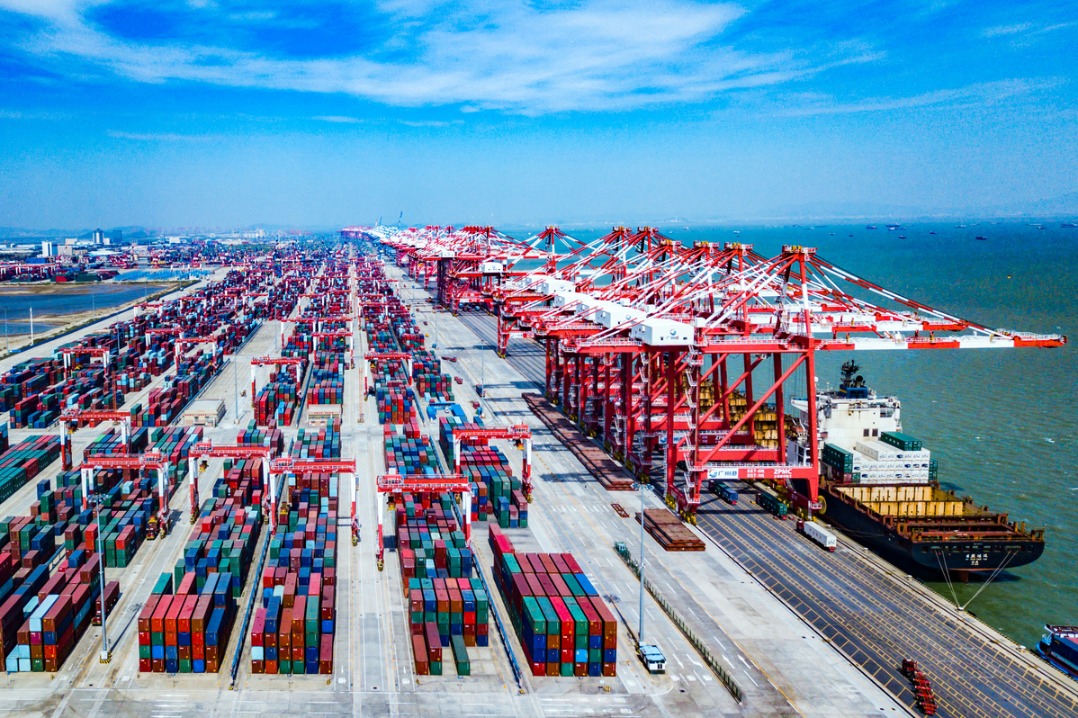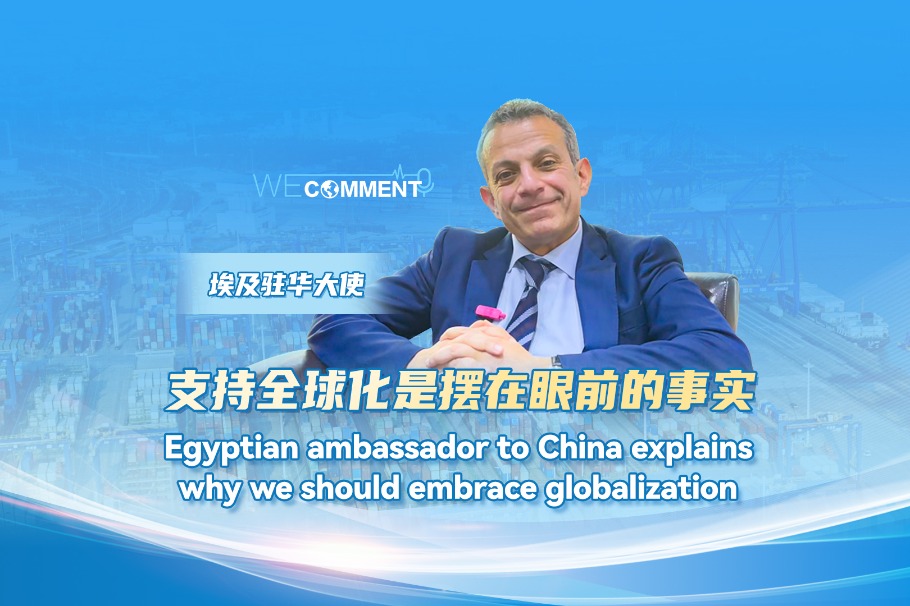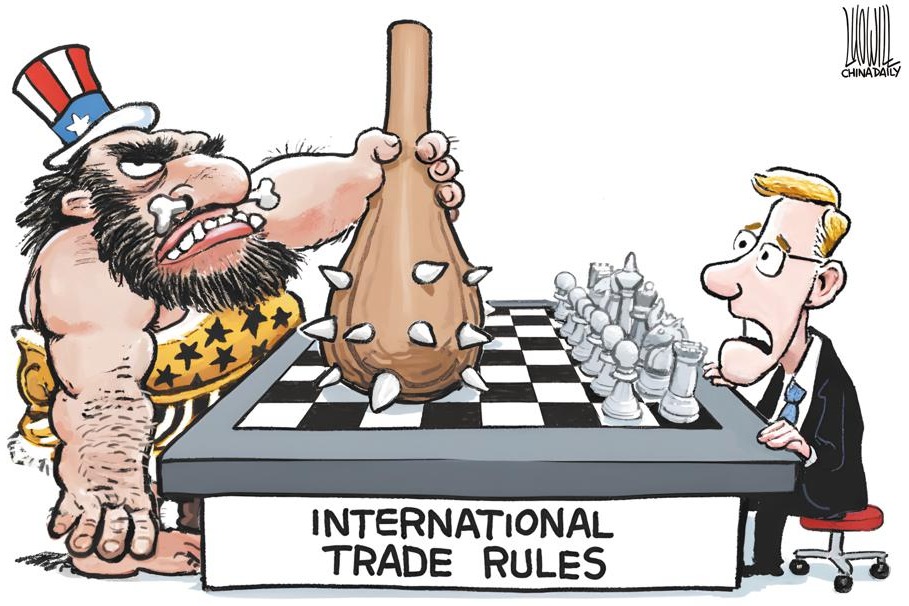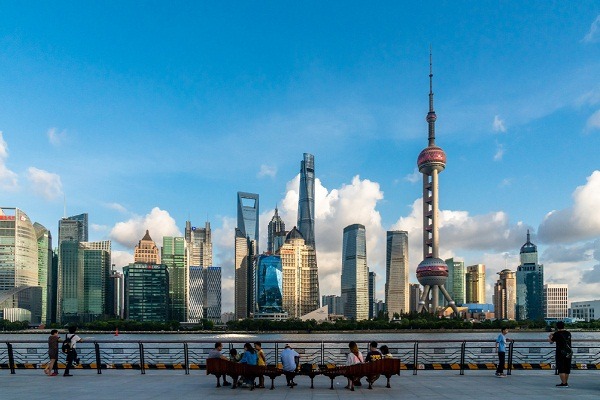Washington trade war necessitates revival of WTO Appellate Body

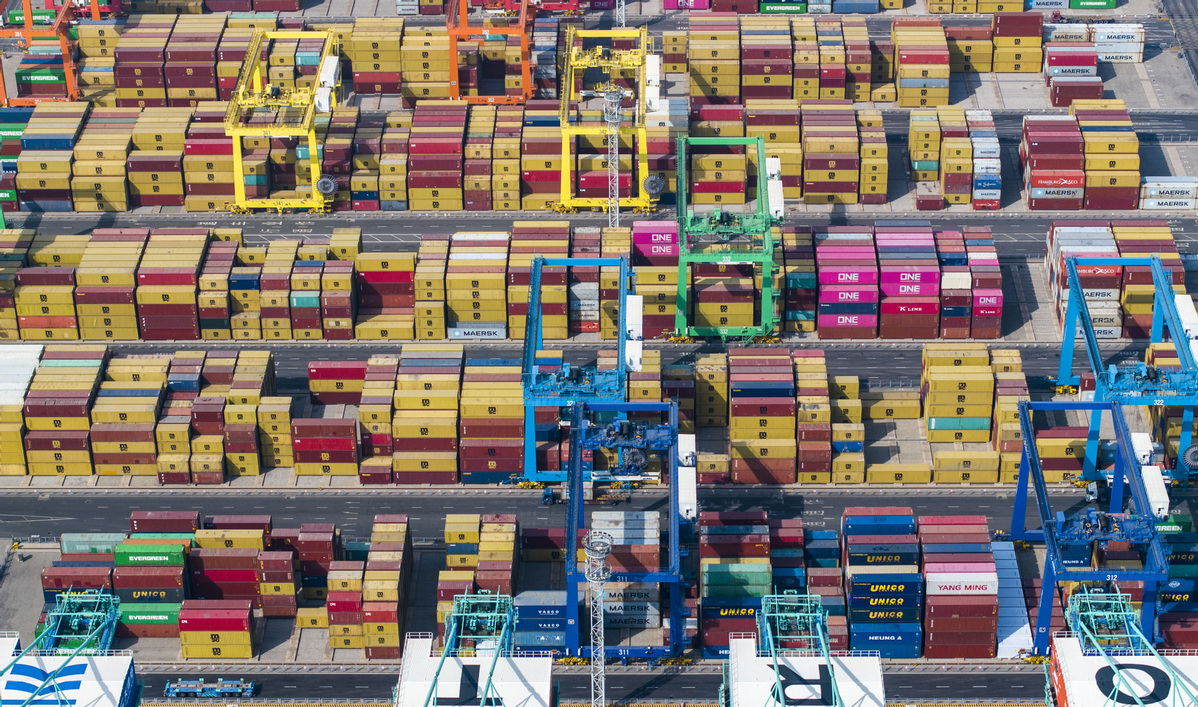
In response to the US imposing unfair massive 104 percent duties on Chinese goods, China announced on Wednesday that it would raise its retaliatory tariffs on imports from the US to 84 percent, effective Thursday. Now the US is threatening to increase tariffs on Chinese goods up to 125 percent.
The US administration is hell-bent on serving its own narrow interests, making the US a dangerous trade partner even for close allies.
In the face of such unjustified tariffs, China approached the Dispute Settlement Mechanism of the World Trade Organization with its complaint. A number of countries targeted by the US administration's reciprocal tariff plan are expected to follow suit. Unfortunately, the WTO's Dispute Settlement Mechanism has since late 2019 been in a limbo because of the US' refusal to approve any proposal to appoint new members to the WTO Appellate Body. The US' stance means that none of the total seven judges who retired on completion of their four-year term could be replaced. In other words, the Appellate Body is paralyzed.
A WTO member accused of violating the world trade body's rules can be brought to the DSM to face charges, especially after it failed in the WTO's panel proceeding. But the fact that the Appellate Body is paralyzed means the dispute will be added to the list of pending cases, and the member state accused of having violated WTO rules cannot be punished.
As a matter of fact, during the trade war Trump launched during his first term in office, similar disputes brought by China to the DSM met the same fate. In dispute number DS544, for example, the US did not revoke its non-compliant tariff measures. Instead, it lodged an appellate process with the DSM. As a result, the dispute is still pending, with the US escaping punishment.
If the US has even the slightest doubt that it would lose the cases in the panel proceedings this time, too, (which it surely will), it will again lodge appeals with the WTO in order to derail the dispute settlement proceedings and escape punishment.
Since the administration's moves are not expected to be confined to China's response, it will not hesitate to include its disputes with other WTO members in the case. Therefore, China, and the other WTO members targeted by the US administration, should make concerted efforts to revive the WTO's Appellate Body.
In order to achieve this goal, they have to reach a consensus that the DSM is of crucial importance for maintaining the stability and predictability of the multilateral trading system. The paralysis of the Appellate Body has dealt a heavy blow to the multilateral trading system. In such a situation the WTO members, whose interests lie in upholding multilateralism, should take a pledge to safeguard the WTO and make unremitting efforts to revive the Appellate Body, because it has the institutional authority to combat unilateralism and trade protectionism.
Besides, since the WTO, including its DSM, is far from being perfect, the member states should work together to reform the world trade body. China has been urging all WTO member states to accord priority to the revival of the DSM's normal operations. It has also been encouraging them to join the "Multi-Party Interim Appeal Arbitration Arrangement", which was created by WTO members in 2020 as a temporary substitute for the Appellate Body.
That certain WTO members still disagree over the Appellate Body's discretionary power to interpret WTO agreements, the concept of "true multilateralism", put forward by China, should serve as the criterion for judging the legality of the Appellate Body's interpretation of the WTO's rules and should form the basis for China to advocate for the reform of the Appellate Body.
An ideal reform plan would be one that aims to stop the US administration from causing more damage to global trade and thus the international community by waging tariff wars. For this, the DSM should be given more teeth, which means it should be authorized to intervene when a member threatens or is about to take unilateral tariff measures against other members.
Nevertheless, with or without such authorization for the DSM, the WTO members should work out the details of a plan to reform the WTO before the 14th Ministerial Conference in March 2026.
The author is the dean of the Academy for the Foreign-Related Rule of Law, China University of Political Science and Law.
The views don't necessarily reflect those of China Daily.
If you have a specific expertise, or would like to share your thought about our stories, then send us your writings at opinion@chinadaily.com.cn, and comment@chinadaily.com.cn.



















